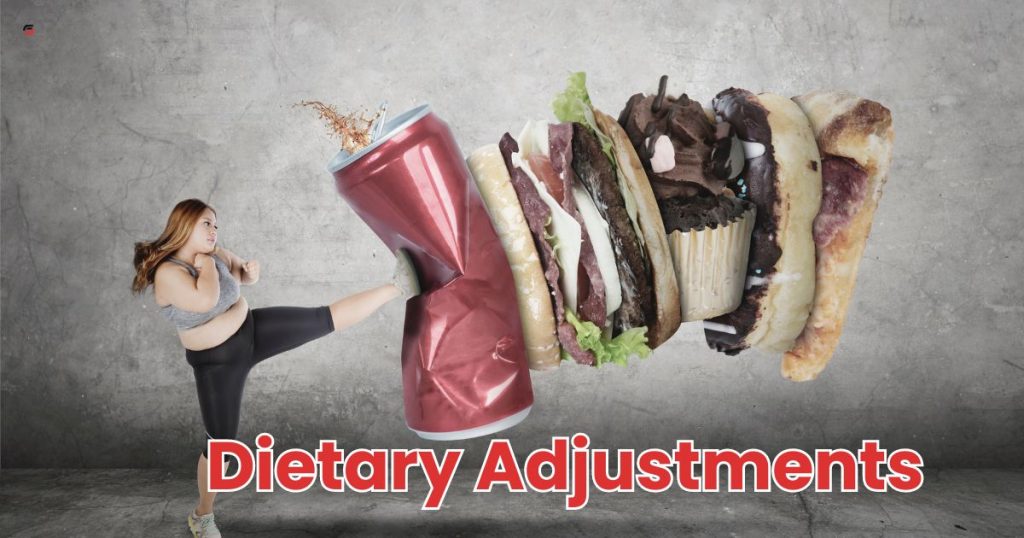Being overweight can increase your risk of developing a host of health problems. Losing weight can be frustrating and difficult, but even losing just 5-10 percent of Body weight can provide significant health benefits. This would translate to a loss of 12-25 lb for someone who weighs 250lbs (lb) or 114 kg (kg). A modest weight loss is a significant achievement.
Both exercise and dietary modifications are effective weight-loss tools. However, for some, these methods are not very effective. in this guide, we have enlisted the treatment options for Obesity.
Treatment Options For Obesity
Sometimes, a health problem such as a hormonal imbalance can lead to weight gain. This is where treatment of the imbalance may be helpful.
Dietary Adjustments

People can lose weight by eating less high-fat food and replacing them with more fruits, vegetables, and other healthy foods. One reason why excess weight and fat accumulate is when a person consumes more calories than they consume. This can lead to weight gain.
Some foods are more susceptible to weight gain than others. Some processed foods have additives like high-fructose syrup. This can lead to weight gain by causing changes in your body.
Weight loss can be achieved by decreasing the intake of processed, refined, and ready-made foods that are high in fat and sugar, and increasing your consumption of whole grains, fresh fruits, and other high-fiber food. High-fiber foods have one advantage. They make it easier to eat less and feel better. Whole grains can make a person feel fuller longer because they release more energy slowly.
A doctor or dietitian may be able to help you choose a strategy, and perhaps a suitable weight loss program.
Physical Activity
Even though the body burns calories when people are sitting down or asleep, most people find that the more active they become, the more calories they will burn. But this may take some time. To lose 1 pound of body fat, one must burn 3500 calories.
These are great ways to get started getting active
- walking briskly
- Swimming
- Instead of using an elevator, use the stairs
- Get off the bus or train a stop earlier, and walk the rest of your way
All chores, such as garden work, housework, and walking your dog, can contribute.
If you’re not used to exercising or having mobility issues, talk to your health professional to learn how to start.
If you aren’t accustomed to exercising, don’t begin with too strenuous an activity. This could pose a risk to your health.
Weight Loss Medication
Sometimes, a doctor will prescribe medication to help someone lose weight.
But, they only do this if:
- Exercise and dietary changes have not led to weight loss.
- A person’s excess weight can pose a serious risk to their overall health
People should consider taking medication with a reduced-calorie diet. Medication cannot replace lifestyle changes.
Surgery
Bariatric surgery (or weight loss) involves the surgical removal of or modification to a portion or part of a person’s stomach or small intestine to reduce their food intake or absorption. This can aid in weight loss and reduce the chance of type 2 diabetes and high blood pressure. Surgery may reduce the size of the stomach or bypass a part of the digestive tract.
Hormonal Therapy
One day, hormonal treatment may be able to help those with obesity. One reason bariatric surgeries are so successful is the effect it has on hormones in the stomach. The potential for novel, non-surgical solutions could be possible by harnessing these hormones. Researchers believe that certain hormones can be combined to provide more effective therapy.


